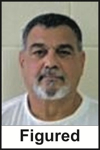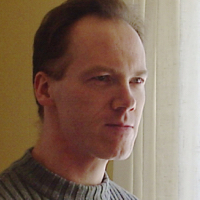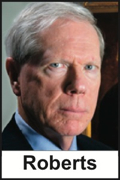Rascals case in brief
In the beginning, in 1989, more than 90 children at the Little Rascals Day Care Center in Edenton, North Carolina, accused a total of 20 adults with 429 instances of sexual abuse over a three-year period. It may have all begun with one parent’s complaint about punishment given her child.
Among the alleged perpetrators: the sheriff and mayor. But prosecutors would charge only Robin Byrum, Darlene Harris, Elizabeth “Betsy” Kelly, Robert “Bob” Kelly, Willard Scott Privott, Shelley Stone and Dawn Wilson – the Edenton 7.
Along with sodomy and beatings, allegations included a baby killed with a handgun, a child being hung upside down from a tree and being set on fire and countless other fantastic incidents involving spaceships, hot air balloons, pirate ships and trained sharks.
By the time prosecutors dropped the last charges in 1997, Little Rascals had become North Carolina’s longest and most costly criminal trial. Prosecutors kept defendants jailed in hopes at least one would turn against their supposed co-conspirators. Remarkably, none did. Another shameful record: Five defendants had to wait longer to face their accusers in court than anyone else in North Carolina history.
Between 1991 and 1997, Ofra Bikel produced three extraordinary episodes on the Little Rascals case for the PBS series “Frontline.” Although “Innocence Lost” did not deter prosecutors, it exposed their tactics and fostered nationwide skepticism and dismay.
With each passing year, the absurdity of the Little Rascals charges has become more obvious. But no admission of error has ever come from prosecutors, police, interviewers or parents. This site is devoted to the issues raised by this case.
On Facebook
Click for earlier Facebook posts archived on this site
Click to go to
Today’s random selection from the Little Rascals Day Care archives….
Click for earlier Facebook posts archived on this site
Click to go to
Today’s random selection from the Little Rascals Day Care archives….
Other victims of the ‘decade of moral panic’
Oct. 24, 2011
It’s almost obscene to consider the Edenton Seven as lucky, but at least they eventually went free.
Mark Montgomery, the Durham appellate lawyer who represented Bob Kelly, cites two clients still in prison after being convicted of bizarre sexual abuse during the decade of moral panic, 1984-94.
“Junior Chandler was a driver for a (Madison County) day care. The prosecutor (the same who prosecuted Bob Kelly) alleged that Junior would drive off his route to a park by a river, strip the children of their clothes, troop them down to the river, put them in a rowboat, commit various sexual acts, put them back on the bus and take them home.
Based almost exclusively on hearsay and expert ‘vouching,’ Junior was convicted in 1987, and sentenced to two life sentences.
 “Pat Figured was supposed to have driven from North Raleigh to Smithfield over his lunch hour to stick a screwdriver into the anal openings of his girlfriend’s two children. (UNC Chapel Hill) psychologist Mark Everson testified that the children ‘had been abused by Mr. Pat Figured.’ Pat was convicted in 1993 and sentenced to life in prison.”
“Pat Figured was supposed to have driven from North Raleigh to Smithfield over his lunch hour to stick a screwdriver into the anal openings of his girlfriend’s two children. (UNC Chapel Hill) psychologist Mark Everson testified that the children ‘had been abused by Mr. Pat Figured.’ Pat was convicted in 1993 and sentenced to life in prison.”
Here is the North Carolina Supreme Court’s 2010 decision that kept Andrew Chandler Jr. a/k/a Junior Chandler in prison.
And here is a thorough history of Pat Figured’s case.
The fate of Chandler and Figured is surely appalling. However, Montgomery adds, “For each defendant who went to trial and was convicted of sexual abuse, dozens more pled guilty to a lesser charge in order to avoid trial for crimes that are difficult to defend against and carry draconian penalties.”
Day-care panic rooted in more than sex-role changes

georgecaseblog.wordpress.com
George Case
Sept. 23, 2016
“We Believe the Children” offers a clear explanation of how a then-novel crusade for child welfare and a murk of neo-Freudian psychological theory together drove officials to find suppressed trauma where none existed, and [Richard] Beck also cites the popular nonfiction books Sybil (1973) and Michelle Remembers (1980) for their role in spreading acceptance of Multiple Personality Disorder and Satanic Ritual Abuse as authentic phenomena.
“He further argues that the day care scandals represented a conservative backlash on behalf of traditional family structures, in which fathers worked while mothers stayed at home to raise children, over the newer model of two busy parents dropping their kids off with professionals. In this reading, the contemporaneous wave of incest survivor memoirs and self-publicizing MPD victims likewise reinforced the traditionalist ideal of helpless females unable to cope in a modern society that gave women too much sexual and career freedom.
“Maybe. Yet Beck only devotes a paragraph or two to the burgeoning pop-culture fascination with the occult which preceded the Satanic panic, and it’s worth pointing out that, despite hit films like The Godfather and Scarface, no one in the 1980s was accused of recruiting children into a mobster underworld, and despite turmoil in the Middle East, day cares were not suspected of being fronts for Islamic terrorists.
“Rather, the emphasis on perversion, ritual killing, and cultism which characterized the scare drew on obvious sources in the mass entertainment of the mid-1960s onward. As I’ve written in my book Here’s To My Sweet Satan: How the Occult Haunted Music, Movies, and Pop Culture, 1966-1980,
For a culture accustomed to the bloody rampages of Charles Manson, the shameless perversities of Anton LaVey, and the no-holds-barred gross-outs of The Exorcist, such combinations of cruelty, vulgarity, and the occult [in the McMartin charges] were no longer surprising.…For a long time the public had been bombarded with messages of what Satan and Satanists were like, of the words, images, and symbols associated with devil worship, and especially of how children were Satan’s favorite victims. It had all finally proved too much for some people.
“I believe it’s this influence that fostered the climate for McMartin and other travesties, at least as much as any right-wing fantasies about dutiful moms and dangerous outsiders….”
– From “Children of the Grave” by Canaadian author and blogger George Case (Sept. 23)
An earlier challenge to Beck’s emphasis on conservative backlash points a finger at feminism.
![]()
Was there nothing to fear but ‘day care itself’?
April 19, 2013
“What can have spurred so many communities to such (ritual abuse) hysteria? The answer may be day care itself. The mothers who report that children never lie are simply unfamiliar with the ways of children. They may also feel guilty about putting their children in day care. A righteous rage against the day-care provider can certainly distract a parent from wondering whether she is doing an adequate job as a mother.”
– From “Believe the children?” by syndicated columnist Mona Charen (October 11, 2003)
Although Charen approaches the subject as a proselytizer for stay-at-home motherhood, less partisan observers also have speculated about the role of day-care guilt.
Did prosecutors sell out for name recognition?
 Nov. 12, 2012
Nov. 12, 2012
“It is not conceivable that any of the prosecutors (in cases such as Little Rascals) believed a word of the charges responsible for ruining the lives of so many people. The cases were brought for one reason alone: to gain name recognition for the prosecutors.”
– From “The Tyranny of Good Intentions: How Prosecutors and Bureaucrats Are Trampling the Constitution in the Name of Justice” by Paul Craig Roberts and Lawrence M. Stratton (2008)
Could prosecutors really have sold their souls (not to mention their public trust) for mere “name recognition”? Or did their lust for guilty verdicts blind them to the obvious?
Most days, the latter seems more likely to me. Or perhaps a hybrid….
Indisputably, however, career benefits did attach to trumpeting from the courthouse steps that you’ve sent away Bob Kelly for 12 consecutive life sentences.











0 CommentsComment on Facebook